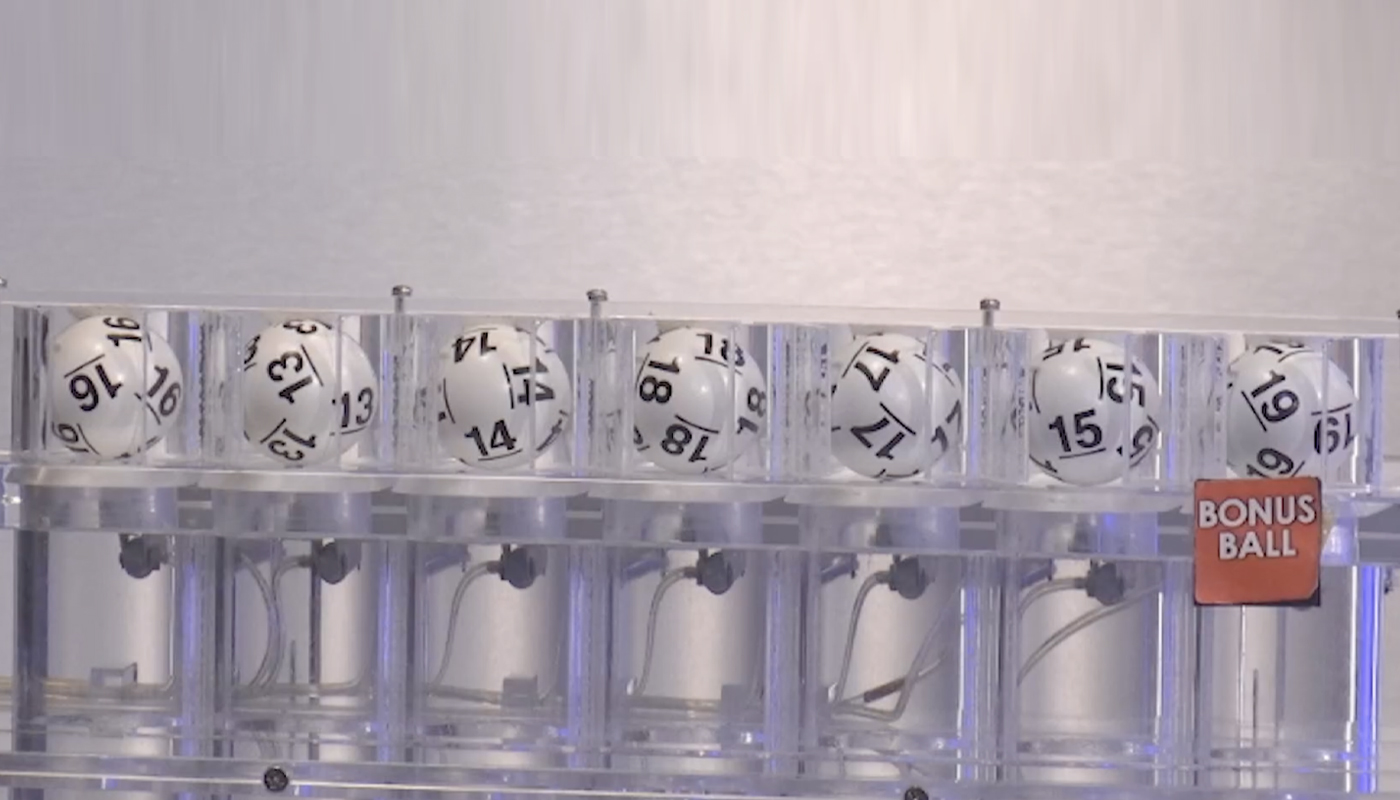
News writer; Opinion columnist
In 2023, senior executives from Lottery.com partied like rock stars on a chartered yacht at the Monaco Grand Prix. They threw massive parties with buckets of champagne, thousands of dollars worth of Cuban cigars, a live band, and A-list guests, such as UK pop star Robbie Williams.
By all appearances, the company was thriving and ready to grow, but the truth was that this was closer to a farewell party than a celebration of the future. Behind the glitz and glamour of a bash on the French Riviera was a company on the verge of bankruptcy, desperate for cash and running on fumes.
While they were once considered a leader in the lottery courier business, it only took a few years for the company to burn through millions in cash and involve itself in at least a half dozen major scandals.
This is the true story of how Lottery.com went from being the most valuable courier service on the market to almost total bankruptcy.
Ready for launch
When Lottery.com first launched in 2015, the company presented itself as a simple solution to a complex problem. While lotteries have grown in popularity nationwide, ticket buying hasn't changed much since the first instant-win tickets were made available in the 1970s.
If you wanted to play, you had to travel to your nearest liquor store, gas station, or other authorized retailer to buy a ticket. In a world where we're used to doing everything from banking to dating over our phones, lottery ticket buying remained a decidedly analog experience.
Most states have strict rules forbidding the sale of lottery tickets over the phone or internet. However, some ambitious companies found a workaround.
Instead of selling tickets directly, services such as Lottery.com billed themselves as courier services. Users could order a ticket over their phone, and a Lottery.com courier would drive to an authorized retailer and buy it on their behalf.
The courier services said they operated like a food delivery driver. They only transported the ticket from one point to another but weren't selling it. This explanation was good enough to allow courier services to operate in up to a dozen different states.
Going public
Lottery.com was one of the earliest courier services to go into operation, and by 2020, it was operating in a dozen states. However, its rapid growth meant that it was in desperate need of cash. The company owed $10 million to a data services company, spent $11 million more purchasing two Mexican lottery businesses, and spent another $6 million buying the web domain Sports.com.
The company was teetering on the edge of bankruptcy when it found a lifeline in a Special Purpose Acquisition (SPAC) company run by Ilya Ponomarev, previously an executive at the Russian oil company Yukos. Ponomarev purchased Lottery.com and injected $63 million in capital into the company. Lottery.com founder Tony DiMatteo said:
They were eager to get a deal done. We had no idea what this game was. They were the grownups in the room.
Eager to see a return on their investment, the SPAC quickly took Lottery.com public on NASDAQ. The stock price shot up to over $200 a share, and in a matter of weeks, the company was worth $800 million.
Funny money
When a business goes public, it must issue periodic earnings reports showing its financial condition, including profits, losses, and cash flow. A poor statement can cause stock prices to plummet and companies to lose millions of dollars of value.
In Lottery.com's first earnings report, they claimed to have earned $30 million in revenue in 2021. However, closer scrutiny revealed that these numbers were false and were created based on several different faulty and potentially illegal accounting practices, including depositing money into an account when it was inspected by auditors and withdrawing the money immediately afterward, creating the illusion that they had a greater cash reserve than they really did.
The company was also embroiled in an unusual scandal in which its then CFO, Ryan Dickson, arranged a complex transaction with a Southern California church to help pay his own tax bill. The church loaned Dickson $2.7 million and took the company's stock as collateral.
However, the value of the stock cratered, and the company allegedly never repaid the church its loan, so Dickson was fired shortly thereafter.
At its peak in November 2021, Lottery.com's stock traded for $314 a share. However, a year later, once investors better understood the company's shady business practices, it was selling for $5-6 a share.
Courier problems
In addition to its financial struggles, Lottery.com quickly found itself trying to manage complex operational issues. Because they had to physically buy every ticket they sold, they needed couriers on the ground who could travel to retailers and secure the tickets.
However, they couldn't always find an available courier when they needed one. So if a customer in Pennsylvania purchased a ticket for a multi-state game, such as Powerball, but a local courier couldn't be found, the company would print the ticket in Texas, where it was an authorized retailer.
Selling a ticket in one state to someone living in another is illegal. And this was hardly a rare occurrence. An internal company investigation revealed that Lottery.com's Texas operation printed 500,000 tickets worth more than one million dollars for players who didn't live in the state.
Lottery.com claimed that they used geo-location technology to verify that their customers were physically located in the state where they were purchasing a ticket, but another investigation revealed that this wasn't true. Players could buy tickets in any state if they did so over their computers, instead of their phones.
“We are breaking the law in 42 different ways,” one board member said at a June 2022 meeting, according to a transcript obtained by Bloombergtax.com.
Following the investigations, board members ordered the web-based app to be shut down. A few months later, the company laid off its entire staff and closed down operations entirely.
To add insult to injury, the external law firm that uncovered the wrongdoing was allegedly never paid for their work.
Lifeline
Scandals and a cratering stock price would have destroyed most companies, but Lottery.com had more lives than a cat and found a way to move forward. Desperate to keep the business out of bankruptcy, the SPAC team connected with the London-based company Woodford Eurasia, which billed itself as a firm specializing in turning around struggling businesses.
Woodford Eurasia leaders agreed to lend Lottery.com up to $50 million if they could install their own board and CEO. The SPAC agreed, and securities lender Sohail Quraeshi, previously the CEO of a cannabis company, was chosen as the company's new leader.
Quraesh knew the company was in trouble but was intrigued by the potential of turning it around. “It's a shitshow, but it's an interesting shitshow,” he told reporters later.
However, turning around Lottery.com was an even bigger challenge than Quraeshi imagined. He flew to the company's offices in Austin, Texas, and found that, other than a few servers, they were completely empty. He recalled saying:
This isn't a corporate office; this is a failed 7-Eleven with three goddamn machines.
Quraeshi worked to turn the company around, but after a dispute with Woodford Eurasia about their lack of financial support, he was fired less than a year after he had been hired.
Asked later for his opinion on the company, the former CEO replied, “Is this the perfect fraud or the perfect stupidity? I don't know.”
Lotto Texas scandal
By 2023, Lottery.com was all but dead. The company had largely ceased operations, no longer acted as a courier for tickets, had fallen out of compliance with the various state lotteries it worked with, and the stock price was trading under $2.
However, there would be one last hurrah before the company completely fell apart. In April 2023, the in-state draw game Lotto Texas saw its cumulative jackpot grow to $95 million.
A European-based gambling syndicate operating under the name Rook TX allegedly spent $25 million to purchase every single number combination for the April 22 drawing and won the entire prize.
An investigation later revealed that to purchase millions of tickets in just three days, Rook TX contracted with three different courier services, including Lottery.com. Despite barely existing as a company and not being in compliance with Texas Lottery regulations, Lottery.com was able to secure several lottery ticket terminals and printed millions of dollars worth of tickets for the drawing.
Texas lawmakers were so outraged at the manipulation of the lottery that they passed laws to ban the operations of all lottery ticket courier services in the state. They even threatened to end the lottery entirely unless further reforms were enacted.
Despite the scandal, Lottery.com made millions of dollars by providing its services to Rook TX.
Legal victories
Despite a legacy of scandals, mismanagement and law breaking, Lottery.com has enjoyed recent success in the court system.
Florida resident Sharon McTurk sued Lottery.com and its CEO Matthew McGahan for fraud after claiming she was owed stock in the company after investing nearly $2 million into Lottery.com.
McGahan claimed that a third party had defrauded her and that Lottery.com was entitled to keep the money without issuing her any stock. In February 2025, a Florida Federal Court dismissed the case against Lottery.com with prejudice, citing a lack of credible evidence.
Following the victory, McGahan issued a press release stating:
I am delighted with the honorable judge's decision. The case required the company to allocate financial resources and extraordinary amounts of time that would have been better spent on our turnaround efforts and operations. Many untruths were told in this story that caused immense stress for both me and my family.
Lottery.com reborn
Despite myriad scandals, lawsuits and CEOs, Lottery.com is still alive and is attempting a comeback. While the company no longer operates a courier service in America, under yet another new executive leadership team, it is trying to expand into developing markets, such as Africa, Europe and the Dominican Republic.
Additionally, they run the appropriately named sports website Sports.com, which publishes articles and videos covering everything from baseball to boxing to European soccer.
While the company's current value of $19 million is far from its peak of $800 million, its stock has risen from its low point of 28 cents a share, briefly improving to over $2 a share in February 2025 and currently hovering around $0.81 per share.
Whether it can return as a courier service for lottery tickets remains to be seen.





















Comments